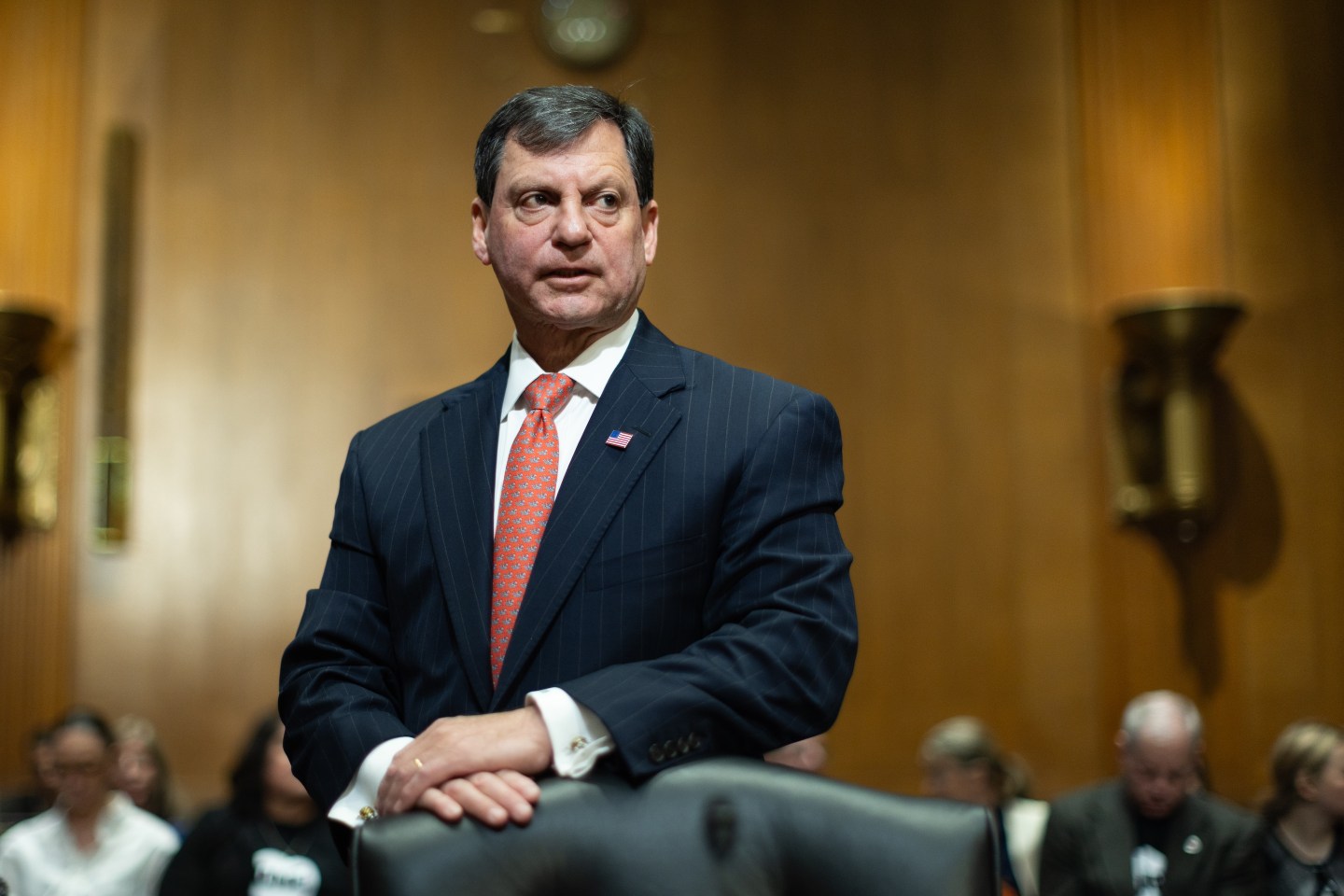Good morning. As a society, we’ve developed reusable rockets, invented quantum computing, and engineered humanoid robots that are straight out of Black Mirror.
But the activity ahead of this year’s NBA trade deadline? There isn’t an AI agent on the planet that can generate an explanation for that one.
Today’s tech news below. —Andrew Nusca
P.S. A reminder that a reply to this email will go straight to my inbox. Please do introduce yourself; I’d love to hear what you’re working on.
Want to send thoughts or suggestions to Data Sheet? Drop a line here.
Google nixes promise not to use AI for weapons or surveillance

Sure, the famous “Don’t be evil” line in Google’s code of conduct has been dead and buried for about seven years now. But it still hurts to see the company known for putting new-employee “Nooglers” in propeller hats show its guile.
Google on Tuesday updated its artificial intelligence principles by removing promises not to use the technology for weapons or surveillance. The original language had been in place since 2018.
In a blog post, Google DeepMind CEO Demis Hassabis and SVP James Manyika described a “global competition” underway for “AI leadership” in a complicated geopolitical landscape.
“We believe democracies should lead in AI development, guided by core values like freedom, equality, and respect for human rights. And we believe that companies, governments, and organizations sharing these values should work together to create AI that protects people, promotes global growth, and supports national security.”
Shortly before the end of his term, U.S. president Joe Biden issued an executive order mandating safety practices for AI. President Donald Trump rescinded it when he returned to the White House.
Google CEO Sundar Pichai, who was in attendance at Trump’s inauguration, was unsparing when he first laid out the original AI guidelines in 2018. The weapons and surveillance restrictions in particular were prompted by employee protests about the company’s involvement in a Pentagon project to use AI to improve weapons system targeting.
Things have changed. After dozens of Google employees protested against an Israeli military contract early last year, the company fired them. “This is a business,” Pichai wrote in a company-wide memo, “and not a place to act in a way that disrupts coworkers.” —AN
It’s knives out for Big Tech in the Age of Trump
Countries are continuing to target U.S. Big Tech as they respond to actual or threatened tariffs from Trump’s America.
China’s antitrust authority is reportedly preparing a probe into Apple over practices like its 30% cut of in-app purchases and its ban on third-party app stores. It’s also announced an antitrust investigation into Google, since Trump slapped a new 10% tariff on Chinese imports.
Meanwhile, the EU is reportedly threatening to hit Big Tech hard if Trump tries to use tariffs to get the EU to ease up on regulatory enforcement and/or to force Denmark to give up Greenland to the newly expansionist U.S.
Details are still vague, but the EU recently introduced an “anti-coercion” mechanism that would let it restrict Big Tech’s ability to serve European users and also place limits on “trade-related aspects of intellectual property rights.”
What does that mean in practice? The Commission wouldn’t tell me when I asked, but Europe is a huge market and taking such drastic steps would have a serious impact on Trump’s new coterie of Silicon Valley fans. —David Meyer
Disney earnings jump by 44% as it teases sports streaming, password sharing crackdown
Disney’s first quarter of 2025 has set an optimistic tone for the year, with the entertainment behemoth reporting strong financial results and unveiling ambitious plans for the future.
The company exceeded Q1 expectations, posting 44% growth in per-share quarterly profit compared to the previous year, bolstered by the top three movies at the global box office in 2024—Inside Out 2, Deadpool & Wolverine, and Moana 2.
Its overall streaming business, which includes Disney+ and Hulu, posted a $293 million profit for the quarter—better than the $138 million loss the previous year. Disney is on track to meet its ambitious goal of $1 billion in streaming profit for the year.
Not all parts of the business were strong. Investments and inclement weather led to a 5% decline in operating income for the company’s Parks and Experiences unit, its largest. But operating income at its international parks was up 28%.
Disney’s strong quarter certainly helps put CEO Bob Iger’s massive pay package—$41.1 million in total comp in 2024, up 30% from the previous year—into perspective, though the market was unimpressed, trading Disney shares slightly down.
Looking ahead, Disney says it plans to roll out a series of enhancements for Disney+ over the next 12 months—among them a more dynamic home screen (to increase user engagement) and a crackdown on password sharing (to increase profits, as successfully demonstrated by rival Netflix).
The company is also preparing to launch ESPN Flagship, a comprehensive sports streaming service, in fall 2025. —Hallie Steiner
More data
—Google axed its diversity hiring targets, too.
—USPS is processing Chinese parcels again. The reversal came just hours after the initial decision to halt packages at the border.
—Qualcomm posts strong Q1 earnings. Quarterly revenue up 17% YoY to $11.67 billion, beating estimates.
—Is a smarter Alexa finally coming? Amazon announces an event for Feb. 26.
—Apps that steal your crypto recovery codes. They’re in Android and Apple app stores and using OCR to do it.
—Sonos lays off about 200 people. It’s about 12% of the company’s workforce.
—SoftBank in talks to acquire Ampere Computing. It would value Renée James’ chipmaker at about $6.5 billion.













